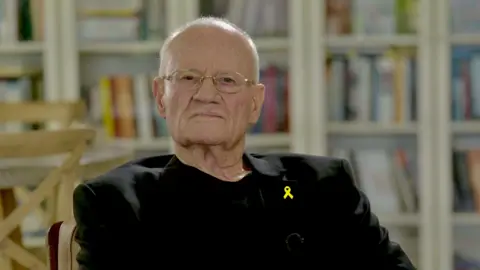**Israeli Reservists Express Opposition to the Gaza War Amidst Growing Pressure on Netanyahu**
In the midst of ongoing conflict in Gaza, a notable shift in sentiment is emerging among Israeli reservists, sparking significant public discourse and pressing political ramifications for Prime Minister Benjamin Netanyahu’s administration. Over the past few weeks, thousands of reservists from various military branches have come forward, signing letters and articulating a clear demand for the government to cease hostilities and instead focus on negotiating the release of the remaining 59 hostages currently held by Hamas. This grassroots movement reflects a profound change in public opinion regarding the war’s objectives and the leadership’s handling of the crisis.
Historically, support for the military action in Gaza was largely unanimous among the Israeli populace, particularly in the wake of Hamas’s assault on October 7, 2023. However, this initial consensus has eroded, particularly following the breakdown of a ceasefire agreement in January. Many Israelis had hoped that this ceasefire would pave the way towards a resolution of the conflict, only to see those hopes extinguished when conflict resumed in mid-March. Former head of the Mossad, Danny Yatom, expressed concerns that the motivations guiding Netanyahu are rooted more in political self-preservation than in the safety and well-being of the hostages.
The disillusionment felt by many reservists is palpable, particularly among those who were previously avid supporters of military interventions. Yatom, among the signatories of the letters urging for an end to the hostilities, articulated his decision to participate in these protests not as a partisan political act, but out of a deep-seated national concern. “I am highly concerned that my country is going to lose its way,” Yatom stated, emphasizing the importance of prioritizing national integrity over political interests.
The surge in dissent among reservists is reflected in the increasing number of letters signed by military personnel, encompassing elite units and seasoned commanders. The first letter, signed by 1,000 air force reservists in April, made it clear that the continuation of the war was counterproductive. As the number of signatories has surpassed 12,000, it has become evident that many former supporters of military action are now reconsidering their positions. Reports suggest a decline in the participation rates of reservists, with attendance dropping to alarming levels of 50-60%, raising concerns about the military’s future effectiveness.
Reservist “Yoav” (a pseudonym for anonymity), who served in Gaza last summer, mirrored these sentiments of disillusionment. Although initially motivated by a desire to help his country, Yoav expressed regret and a feeling of misguided priorities with the government’s ongoing military strategy. “It’s not about beating Hamas,” he said, “it’s about losing our country,” highlighting the moral ambiguity that longer conflicts tend to generate within military personnel.
Prominent retired officers have echoed Yoav’s sentiments, with calls for those in command to consider disobeying orders that could lead to violations of international law. This profession of ethical concern brings forth complicated questions regarding the moral high ground that the Israeli military has long claimed. The narrative that Israel operates as “the most moral army in the world” becomes increasingly contentious as images of casualties and international legal considerations weigh heavily on public opinion.
Netanyahu’s responses to this wave of dissent have been dismissive, with the Prime Minister categorizing the protestors as fringe elements lacking legitimacy. However, public opinion polls indicate a significant portion of the populace believes that the salvation of the hostages should take precedence over military operations. This growing sentiment highlights a shifting paradigm within Israeli society and raises questions about Netanyahu’s ability to maintain his grip on power amidst a potentially fracturing military and public support.
In Tel Aviv, protests continue to illustrate the emotional toll of the ongoing conflict, juxtaposing images of hostages with painful reminders of civilian casualties. Police forces face criticism for attempts to censor expressions of dissent, underscoring the volatile political climate fueling both public protests and governmental responses.
As Netanyahu remains steadfast in his commitment to military action as the primary means to secure the return of hostages, the dialogue surrounding the war in Gaza grows increasingly complex. The juxtaposition of military objectives against the pressing humanitarian calls for peace and resolution will likely continue to challenge the Israeli government and its citizenry in the coming months.



